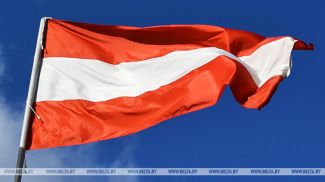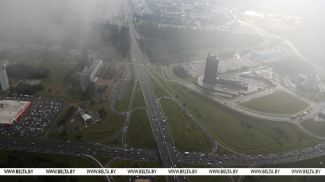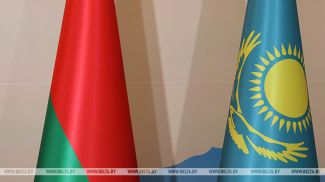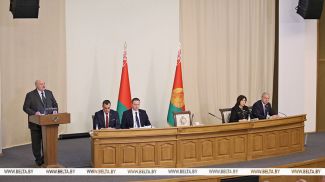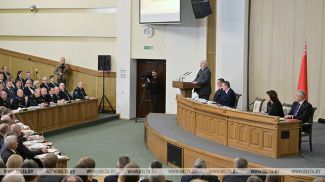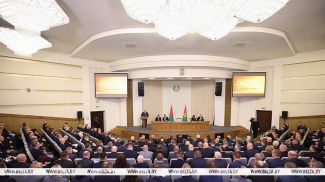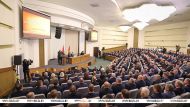MINSK, 15 March (BelTA) – Belarus President Aleksandr Lukashenko signed decree No.106 on 15 March to approve the composition of the Security Council, BelTA has learned.
According to the document, the president of Belarus is the chairman of the Security Council.
Eight civil servants are permanent members of the Security Council: the prime minister, the heads of the lower chamber and the upper chamber of the Belarusian parliament, the head of the Belarus President Administration, the state secretary of the Security Council, the interior minister, the defense minister, and the head of the State Security Committee.
According to the decree, the Security Council also includes heads of the Supreme Court, the State Control Committee, the Board of the National Bank of the Republic of Belarus, the Investigative Committee, the State Authority for Military Industry of the Republic of Belarus, the State Border Committee of Belarus, the prosecutor general, the ministers of foreign affairs, finance, and emergencies, and the chief of the General Staff of the Armed Forces – first deputy defense minister.
BelTA reported earlier that State Secretary of the Security Council of Belarus Aleksandr Volfovich delivered his report to Belarus President Aleksandr Lukashenko on 25 February. During the meeting Aleksandr Lukashenko stated it is necessary to streamline and even reorganize some aspects of the work of the Security Council. “We need to improve certain documents regarding the operation of the Security Council. On the example of Russia, Kazakhstan and other close states I would like to know how they ensure the operation of the Security Council,” Aleksandr Lukashenko said.
After the meeting Aleksandr Volfovich told reporters about proposals on adjusting the membership of the Security Council. The official said: “Considering today's situation, it was suggested to the president that the defense minister, the internal affairs minister, and the chairman of the State Security Committee should be added to the list of permanent members of the Security Council.” Aleksandr Volfovich noted that in the course of working out these proposals the experience of operation of similar agencies in other countries in the post-Soviet space had been examined, including the work of similar agencies in Russia, Kazakhstan, and Tajikistan.




